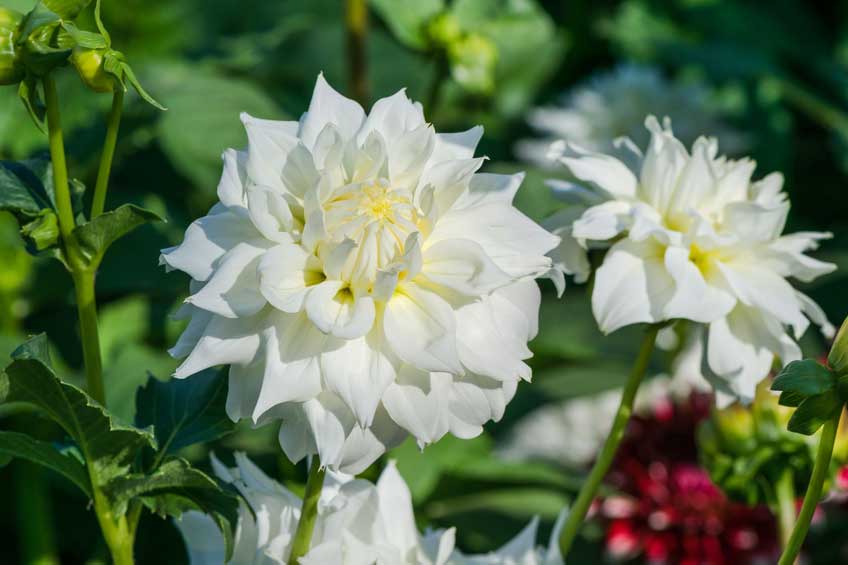
January
Prune large-flowered grevilleas
that have gotten too big for their space, or need neatening up.
Mow lawns
as high as possible to reduce moisture loss and strengthen grass.
Prune the whippy growth on wisteria
back by about 90 percent, leaving a few new buds to produce next year’s flowers.
Curled leaves on citrus
are caused by citrus leaf miner. Prevent the damage with fortnightly sprays of horticultural oil, or try the eco-CLM trap, which can be hung in the tree
to attract and catch the moth that lays her eggs in the leaf. The trap is effective for two or three months and is safe for bees.
Strike cuttings
of queen of the night cactus to share with friends.Keep the mix just wet, and elevate the pot so that any rain can get away quickly and not rot the cuttings.
Roots will take about eight weeks to develop.
Layer grass clippings
into the compost pile, alternating thin layers of clippings with dry brown material or shredded paper and a handful of blood and bone to prevent them compacting.
Trim back
the exuberant growth on star jasmine to keep it neat.
Crops in the cucumber family
are susceptible to mildew. Help prevent it by spraying monthly with a mix of one part milk to five parts water.
Keep a sharp eye out
for rust on frangipani leaves.Remove affected leaves immediately and bin, or start spraying with Eco-fungicide or Yates Rose Shield before the infection
takes hold.
Keep trimming off
the flower spikes on coleus to maintain bushiness. Feed with foliar fertiliser fortnightly.
Trim spent flowers
on buddleias to keep them neat.
February
With summer humidity at its peak,
water in the mornings to allow plants to dry off during the day and reduce the risk of foliar disease.
Forgot to stake the dahlias?
Quick, do it now, before storms and strong winds threaten.
Treat pots and garden beds
with a soil-wetting agent. Use a product that is organically certified so that you are not introducing any chemicals into the soil that could adversely
affect earthworms or microorganisms. Wetting agents break through the waxy coating around organic particles in the soil, allowing the soil to take
up more water.
Hibiscus are tough plants
once established, but love some pampering. Give them a dose of Sudden Impact for Roses now and water in well for a great show through autumn.
Take soft leaf cuttings of begonia.
Dip in hormone powder to strike, or strike in a jar filled one-third with water, with a few drops of seaweed extract added.
Build a super flower display
in clivias next spring by feeding witha liquid fertiliser high in potassium once a month from February to May.
Feed indoor plants
with a monthly dose of Powerfeed.First wipe leaves clean of dust with a damp cloth and check for signs of mealy bug - furry little white blobs in the leaf
axils.Kill them by dabbing them with a cotton bud dipped in methylated spirits.